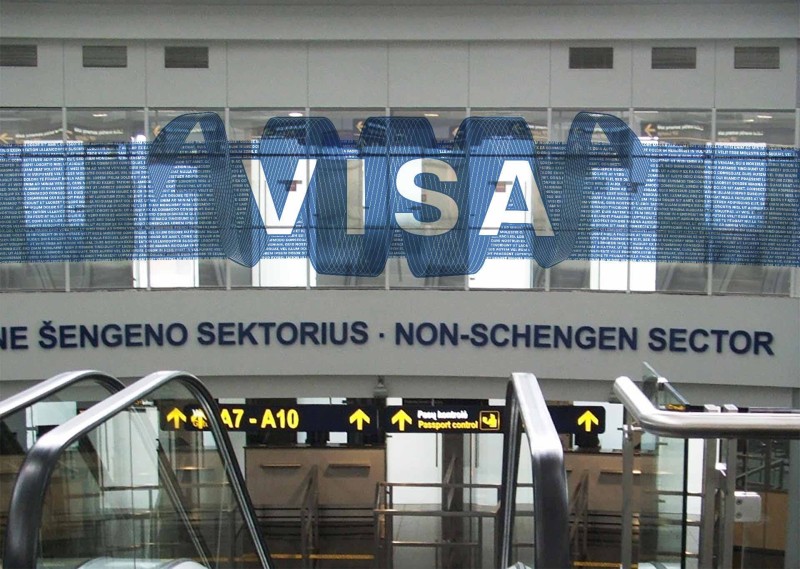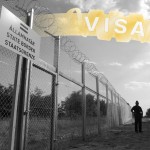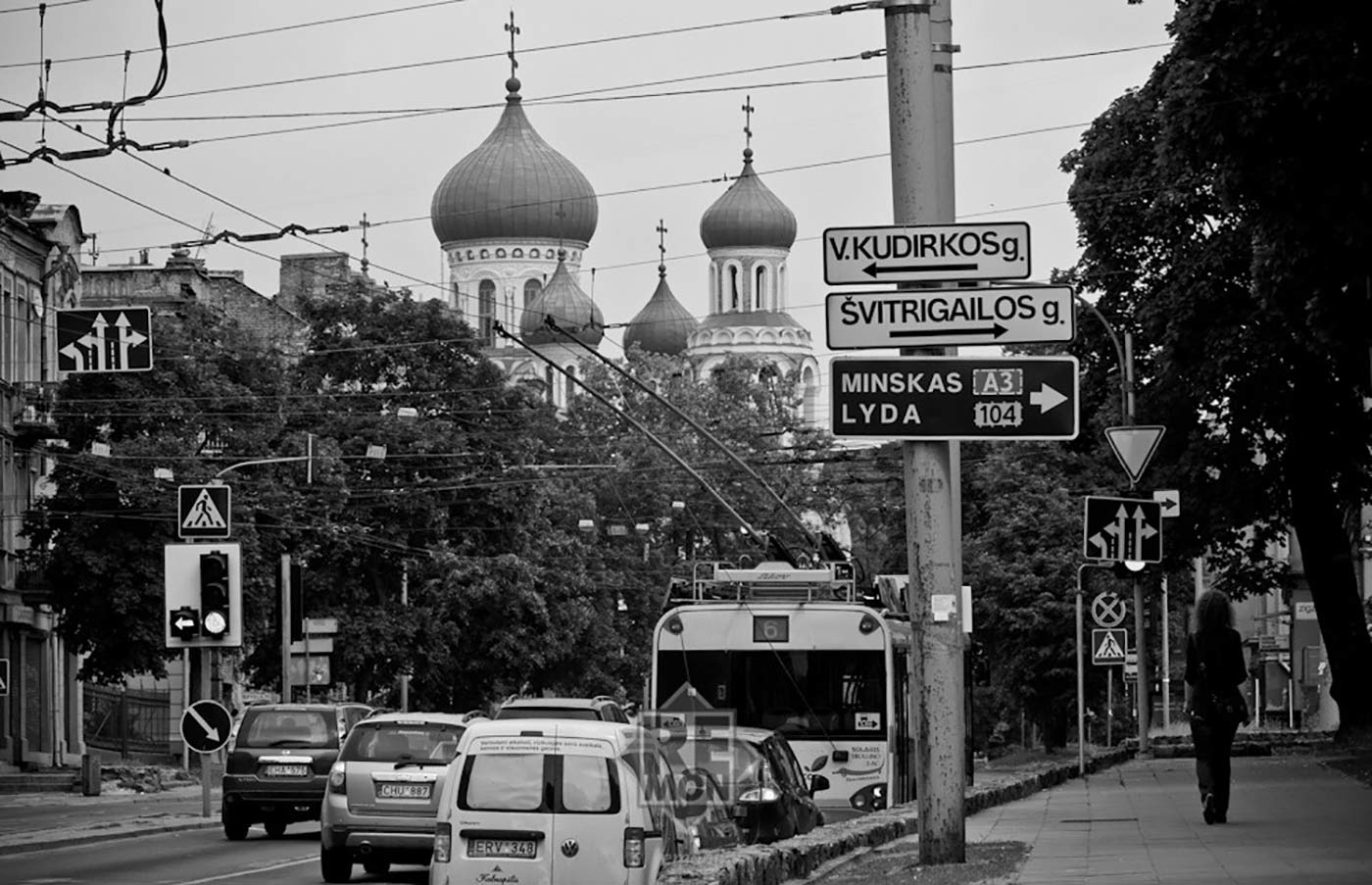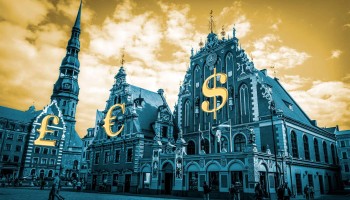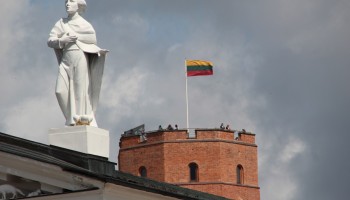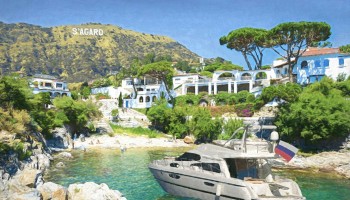Russia’s invasion and annexation of Crimea in 2014 set off shock waves that reached as far as the Baltics.
Four years later, Lithuania is still feeling the effects. First, it saw a surge in Golden Visa-type applications from both parties to the conflict, Russia and Ukraine. And then came the backlash.
Officials began more rigorously examining the backgrounds of new applicants — and turning more people away — as well as re-examining the circumstances behind some permits that had already been issued.
Today Lithuania is less likely to welcome foreigners who want to call the country home. It has revoked one permit and refused to renew another for two men linked to Russian President Vladimir Putin’s inner circle. The country now rejects well over twice as many applications as it did before the invasion.
The two who have been shown the door are Yury Artyakov, brother of Vladimir Artyakov, a top official in the Russian arms industry; and Anton Treushnikov, a former advisor to the Bank Severny Morskoy Put (SMP), which is under sanctions and owned by Putin allies Arkady and Boris Rotenberg.
It appears that one of the easiest ways to gain permission to live in Lithuania is to open a business. Artyakov had invested in a small translation business linked to a major Lithuanian political scandal; Treushnikov in football and hockey clubs. The latter also owns a building in Vilnius, Lithuania's capital, which he rents to a company that runs a popular nightclub.
O Brother, Where Art Thou?
According to a source in the interior ministry, Yury Artyakov obtained his permit when he was one of the top managers at Novikombank, a Russian bank ultimately sanctioned in 2015 over Crimea. Artyakov had left the bank by then, in 2012, to be replaced by his brother Vladimir — a much more influential figure.
Vladimir Artyakov is the former governor of Russia’s Samara region and, since the end of his political career in 2012, one of the top managers at Rostec, a Russian state-owned military and industrial holding company.
Both Rostec and its general director, Sergey Chemezov, are under Western sanctions. Vladimir Artyakov is Chemezov’s right-hand man and the first deputy general director of Rostec. According to the Russian newspaper Izvestiya, Artyakov was denied a United Kingdom visa in 2014 while trying to visit the Farnborough International Airshow with an official Russian delegation. So while Vladimir Artyakov had major trouble getting into at least one EU member state, his brother enjoyed open borders thanks to his Lithuanian permit.
An Infamous Partner
According to Lithuania’s official business registry, Yury Artyakov co-owned a small translation business in the country called Juvilana. His partner in that enterprise, a company called Aviabaltika, is connected to a major political scandal.
Aviabaltika is a Lithuanian helicopter repair company also operating in Russia, Sri Lanka, India and Mexico. Aviabaltika’s owner — and the former direct owner of Juvilana — is Yury Borisov, a Russian citizen and the principal sponsor of Rolandas Paksas, an aviator who won the Lithuanian presidency in a surprise victory in 2003.
Paksas returned the favor by using his exclusive right to grant Lithuanian citizenship to his major campaign donor — an act that eventually led to his impeachment in 2004 and lost him the presidency. Borisov, in turn, lost his Lithuanian citizenship, but has remained an active businessman in the country.
Last October, 15min asked the Migration Department if Yury Artyakov had gotten his residence permit because of his partnership with Borisov. The department would only say that it “reacts to every notice from the representatives of the civil society” and checks for “possible abuse.”
Several weeks after this correspondence with 15min, the department withdrew Artyakov’s permit.
In February, Artyakov transferred his shares of Juvilana to Aviabaltika.
Reporters were unable to reach Artyakov. Borisov did not respond to requests for comment.
The Rotenbergs’ Banker
Artyakov was not the only resident foreigner whose political ties were exposed by Lithuanian media. In September, Laisvės TV, an independent TV station, reported that Anton Treushnikov had a residence permit due to owning a business in the country. Treushnikov is affiliated with the Russian SMP Bank, which is under sanctions.
According to Laisvės TV, Treushnikov has previously invested in Lithuanian football and hockey clubs and now controls a company called Mureks.
After the disclosure, the Lithuanian Migration Department decided not to renew Treushnikov’s permit, meaning he must now apply for visas any time he wants to cross the border.
Numbers Tell the Story
The Treushnikov and Artyakov cases contributed to a stricter policy regarding residential permits in Lithuania.
According to Lithuanian Migration Department data obtained by OCCRP’s Lithuanian partner 15min, the number of people who were denied a residential permit or not allowed to extend one have jumped over the past few years.
Lithuania offers two kinds of residency permits: permanent, which are difficult to obtain; and temporary, which are easier to get and can be extended repeatedly. The government can also refuse to issue a permit or extend a granted permit, or can cancel a permit already issued.
Although the permits have been offered for over two decades, they gained additional value in 2007, when Lithuania joined the Schengen Area three years after being accepted into the European Union. Ever since, the permits have served as a ticket to travel across all EU states.
The data analyzed by 15min covers 2013 to 2017, a period when the demand for the temporary permits rose drastically. In 2013 alone, a total of 6,506 non-EU citizens asked for a new residential permit. Four years later, the demand had risen to nearly 14,000. As a result, the annual number of valid temporary permits nearly doubled from 10,851 to 19,811 in only five years. The number of permanent permits stayed relatively stable at about 18,000 per year.
In 2013, before the annexation of Crimea, 2,868 Russians and 1,950 Ukrainians obtained temporary permits to live in Lithuania; by 2017, that trend had reversed, with more Ukrainians (6,580) than Russians (4,429). Applicants from Belarus had led the field in 2013 with 3,338; but by 2017 Belarus trailed Ukraine and only slightly outpaced Russia with 4,577 residents.
The number of cancelled permits remained stable through 2015, at just over 800 per year. But in 2016, the number rose to 1,204 and, in 2017, reached a record high of 2,869.
Among those who lost their residency, Ukrainians are the clear winners (or rather, losers). In 2017 alone, 1,070 Ukrainian citizens lost their right to reside in Lithuania — nearly as many as Russian and Belarusian citizens combined (595 and 617). However, the number of Russians and Belarusians who lost their permits has also risen significantly — in both cases, by more than 400 each, compared to the result for 2016.
Hundreds of foreigners were also refused permits or were unable to extend permits previously issued. In 2013, 156 foreigners were either denied a residential permit or lost a previously valid one. In 2017, that number rose to 460.
The Migration Department also breaks down why permits were denied or no longer extended for foreign nationals. Since 2013, a total of 101 foreigners were rejected as suspected threats to national or public security.
Nine of those cases were reported for 2013 and 11 in 2014. The numbers increased thereafter, with 26 in 2015; 30 in 2016; and 25 in 2017.
Officials said most of the denials or revocations were for providing false information, forged documents or fake marriages. More than 300 foreigners were denied the right to reside in Lithuania for such reasons in 2017 alone.
The crackdown has backfired, sparking complaints by foreign nationals who were denied Lithuanian residency.
This story was produced as part of the Global Anti-Corruption Consortium, a partnership between OCCRP and Transparency International.
